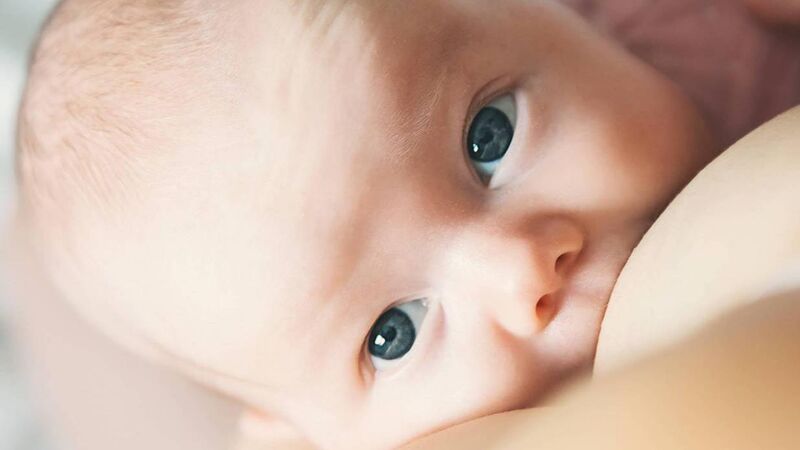10 ways to boost breastfeeding rates (today’s budget can help)

If we’re serious about improving breastfeeding rates, we must invest in initiatives that properly support families who want to do it.
As a volunteer breastfeeding counsellor for the past seven years, I’ve helped countless mothers navigate their breastfeeding experience and know all about the highs and lows of nurturing a baby.
One statistic that recently caught my attention is the link between breastfeeding and cancer risk - for every five months of breastfeeding, there’s a 2% reduction in the risk of developing breast cancer. If a pharmaceutical company could bottle all the benefits of breastfeeding, they would - but they can’t.
That breastfeeding is the optimal way to feed babies is firmly established, but too many mothers still have a shaky experience of it and are regularly failed by a health system that is inadequately funded to help them succeed.
Time, knowledge, and care are the key components to boost breastfeeding - but they require financial support to happen.
Last week, the HSE published the report Breastfeeding In A Healthy Ireland, which details progress on plans to increase breastfeeding rates. The bad news? Ireland continues to have one of the lowest breastfeeding initiation rates in the world, with only 64% of babies commencing breastfeeding after birth (compared to 95% in Sweden!).
In 2021, following a Bainne Beatha report that highlighted many negative experiences of breastfeeding support in Ireland, Health Minister Stephen Donnelly announced additional funding for lactation consultant posts in maternity hospitals.
Research tells us when mothers can access timely skilled support when needed, both in hospital and in the community, then breastfeeding continues longer.
Other positives in recent years include the introduction of paid breastfeeding breaks. Mothers are entitled to a one-hour breastfeeding break per working day up to a child’s second birthday, a move that encourages breastfeeding to continue when a mother returns to work.
Here are ten things that would positively impact Ireland’s breastfeeding rates. I’ll be keeping a close eye on Jack Chamber’s Budget today to see if any of them are included:
Midwives have been under serious pressure trying to care for more complex pregnancies and deliver healthy babies in an environment of chronic staff shortages. Babies keep coming whether there is a recruitment freeze in place or not.
More funding to maternity hospitals, particularly postnatal wards, will allow midwives to deliver crucial breastfeeding-specific support that can set mum and baby up for a positive breastfeeding experience.
There has been a welcome fourfold increase in lactation consultant posts since 2017, but we need more! Inconveniently, babies continue to be born outside the Monday-to-Friday working week and more lactation consultants are needed to offer support seven days a week.
When mothers of sick or pre-term babies are discharged from hospital, leaving their precious bundles in neonatal units, access to hospital-grade breast pumps is vital for supplying breastmilk. Some hospitals loan pumps to mums, but others don’t have enough to meet the need. Minimal investment would remove this obstacle to breastfeeding (and cost way less than an overpriced security hut!)
A high-profile public campaign to highlight a range of voluntary and health service breastfeeding supports would be invaluable for breastfeeding families and would send a powerful message to wider society. There are snazzy TV ads encouraging us to take the bus these days.
All healthcare professionals -beyond just midwives and nurses -need more breastfeeding education. GPs, practice nurses, staff working in emergency departments, or specialist doctors are all likely to encounter mothers or babies, but have limited formal breastfeeding education as part of their training. This needs to change.
Integrating breastfeeding education into school curriculums would normalise breastfeeding for the next generation.
Unsurprisingly, countries with better maternity leave benefits - particularly those that offer longer, paid leave - consistently show higher breastfeeding rates, both in terms of initiation and continuation.
The HSE provides grants to voluntary organisations like La Leche League, Cuidiú and Friends of Breastfeeding to train volunteers to deliver community-based breastfeeding support.
Sometimes a cup of tea, a sympathetic ear and slight adjustment of a breastfeeding position at a welcoming breastfeeding support group can make all the difference to a breastfeeding mama.
While families who can’t or choose not to breastfeed obviously need to use infant formula, the HSE advice is they should consume first infant milk until they are 12 months old. Current loopholes in Irish regulations allow formula marketing tactics that can undermine breastfeeding and encourage unnecessary consumption of follow-on and toddler milks.
Ireland should fully implement and enforce the WHO’s International Code on Marketing of Breastmilk Substitutes to curb misleading formula advertising. All families, regardless of how they feed their babies, will benefit from having unnecessary marketing turned off!
It’s essential to audit the impact of all these interventions for accountability and measuring progress.
Good data matters and needs investment but, in time, we can pat ourselves on the back when we improve health outcomes, reduce healthcare costs and transform from breastfeeding laggards into breastfeeding leaders!







 App?
App?




